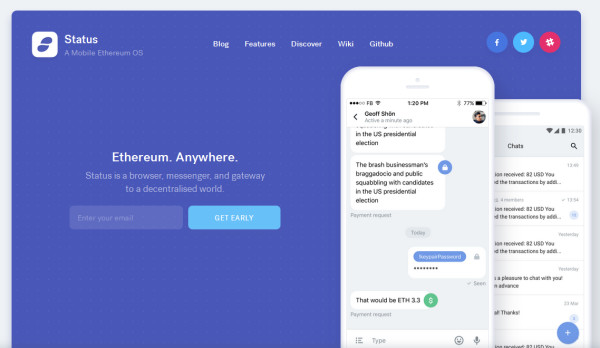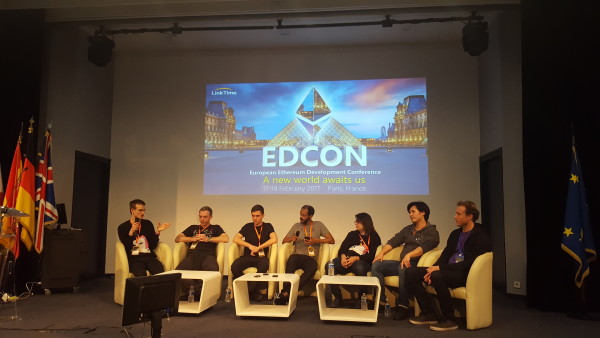
Last month John Domingue and I attended the first European Ethereum Development conference. Over 400 developers and researchers gathered in Paris at the Ecole Supérieure de Commerce de Paris on 17-18 February 2017, to hear about the latest developments in Ethereum technology and research including proof of stake, Scalabilit and Privacy as well as to see demonstrations of Ethereum-based applications.
The event was hosted by LinkTime, a startup that develops Ethereum applications and was supported by the Ethereum Foundation, ADETIF, Asseth- a French Ethereum non-profit and La ChainTech (a French Blockchain non-profit).
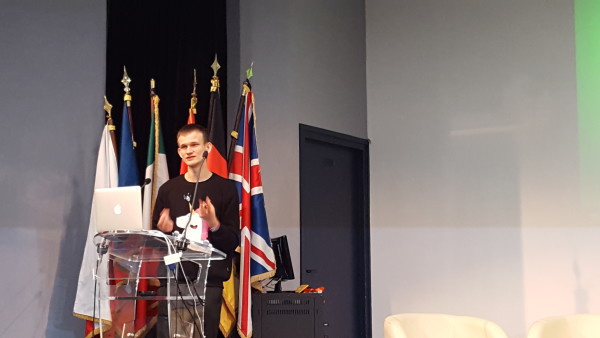
Vitalik Buterin, Ethereums creator, gave an introductory talk on Cryptoeconomics which was followed by an in depth talk from Vlad Zamfir about Casper, Ethereum’s new proof of stake consensus system which they hope may be ready as soon as the end of this year. The benefit for proof of stake over proof of work is associated with the reduced need to use excessive computational resources and therefore electricity to sustain consensus and security.
For me personally there were several talks that were especially exciting to hear as they advanced the progression of the Ethereum blockchain towards an infrastructure that is accessible by the general public.
Firstly, I was interested to he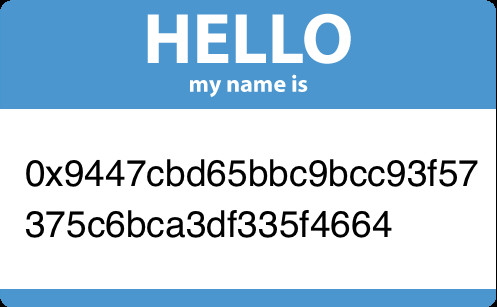 ar about the Ethereum Name Service (ENS) that is currently in testing on the Ethereum testnet but is due to go live soon which "offers a secure and decentralised way to address resources both on and off the blockchain using simple, human-readable names." This registry will be vital if the average person is to interact with Ethereum based web applications and personal and contract blockchain addresses in the same way that DNS systems today allow users to type in human readable strings as web addresses rather than long numbers.
ar about the Ethereum Name Service (ENS) that is currently in testing on the Ethereum testnet but is due to go live soon which "offers a secure and decentralised way to address resources both on and off the blockchain using simple, human-readable names." This registry will be vital if the average person is to interact with Ethereum based web applications and personal and contract blockchain addresses in the same way that DNS systems today allow users to type in human readable strings as web addresses rather than long numbers.
Secondly, there was encouraging update from Status a project that is developing a Mobile Ethereum operating system which will provide, as they put it, "a browser, messenger and gateway to a decentralised world". The Status mobile app will allow users send, receive and store Ether, browse decentralised apps and discover nearby Status users to exchange goods and services.
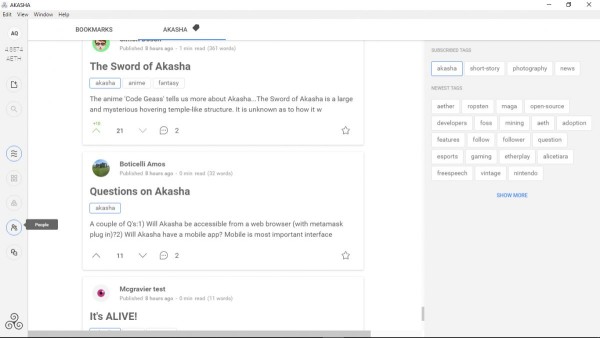
Thirdly there was a presentation from Mihai Alisie the founder of AKASHA who demoed their new social networking platform based on Ethereum and IPFS which publicly launching in January this year. We were so impressed with his presentaion that we are considering the possibilities of using the AKASHA social networking platform to create an educational platform where educators can easilyd host learning materials and build learning pathways and The OU blockchain team will be exploring this further in the coming months.
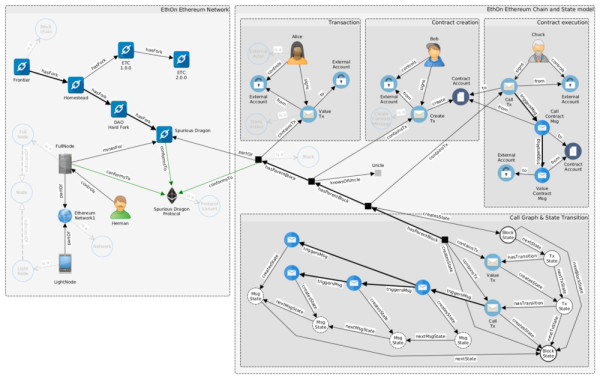
Lastly, I would just like to mention a presentation relevant for KMi semantics and data analytics researchers – EthOn: Introducing Semantic Ethereum which outlined a multi-purpose Ethereum ontology. We will be looking at this ontology closely for our work on semantically indexing the Ethereum blockchain led by Allan Third.
Related Links:


